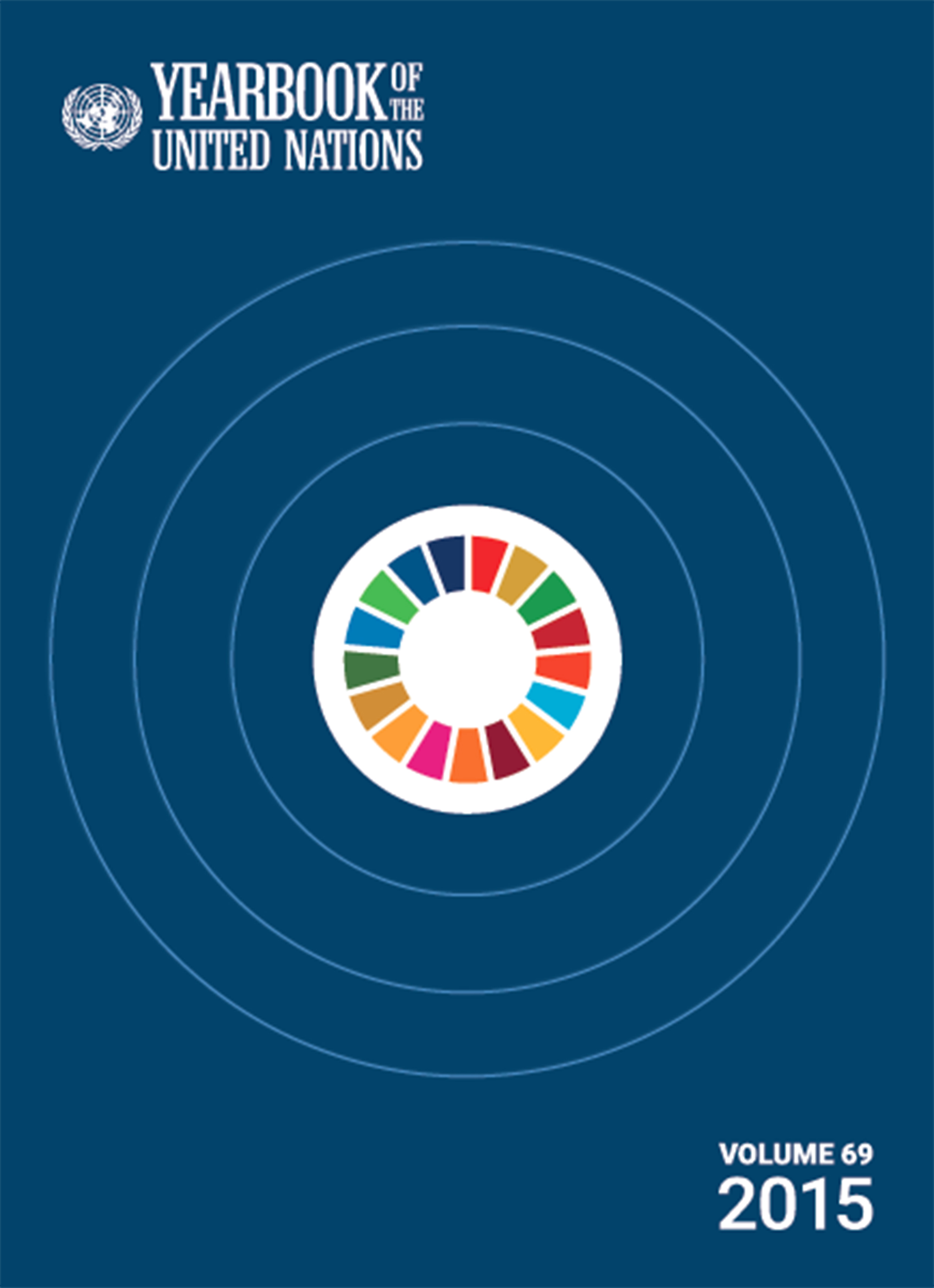International drug control and crime prevention

- Author: United Nations
- Main Title: Yearbook of the United Nations 2015 , pp 612-642
- Publication Date: December 2022
- DOI: https://doi.org/10.18356/9789210019859c031
- Language: English
In 2015, the United Nations, through the United Nations Office on Drugs and Crime (unodc), the Commission on Narcotic Drugs (cnd), the International Narcotics Control Board (incb) and the Commission on Crime Prevention and Criminal Justice (ccpcj), continued to strengthen international cooperation in countering transnational organized crime, corruption, drugs and international terrorism. Unodc provided technical assistance, legal advice and research to the main United Nations policymaking bodies in drug control and crime prevention, and assisted Member States in developing domestic legislation and in implementing the international drug control and crime prevention conventions. During the year, the activities of the Office were guided by its strategic framework for the period 2014–2015 and its integrated programme approach, through which it operated at the national, regional and global levels. It focused on taking a balanced approach to the world drug problem through actions on drug use prevention, treatment and reintegration, supply reduction and alternative development; countering transnational organized crime, corruption and terrorism; and supporting crime prevention and criminal justice. It launched technical cooperation initiatives dealing with interregional drug control, trafficking in persons and smuggling of migrants, and port and border controls, and it facilitated two regional conferences in response to the foreign terrorist fighters phenomenon. New and emerging issues addressed by unodc included cybercrime, crimes committed via the Internet against children, the gathering of digital evidence, the links between terrorism and transnational organized crime, trafficking in cultural property and the destruction of cultural heritage by terrorists. The Office contributed to the 2030 Agenda for Sustainable Development, including by co-chairing the team on Goal 16, on peaceful and inclusive societies, access to justice for all and effective, accountable and inclusive institutions at all levels. A key achievement was the conclusion of the unodc - supported process of revising the Standard Minimum Rules for the Treatment of Prisoners, which were adopted by the General Assembly in December as the United Nations Standard Minimum Rules for the Treatment of Prisoners (“the Nelson Mandela Rules”).
-
From This Site
/content/books/9789210019859c031dcterms_title,dcterms_subject,pub_keyword-contentType:Journal -contentType:Contributor -contentType:Concept -contentType:Institution105

